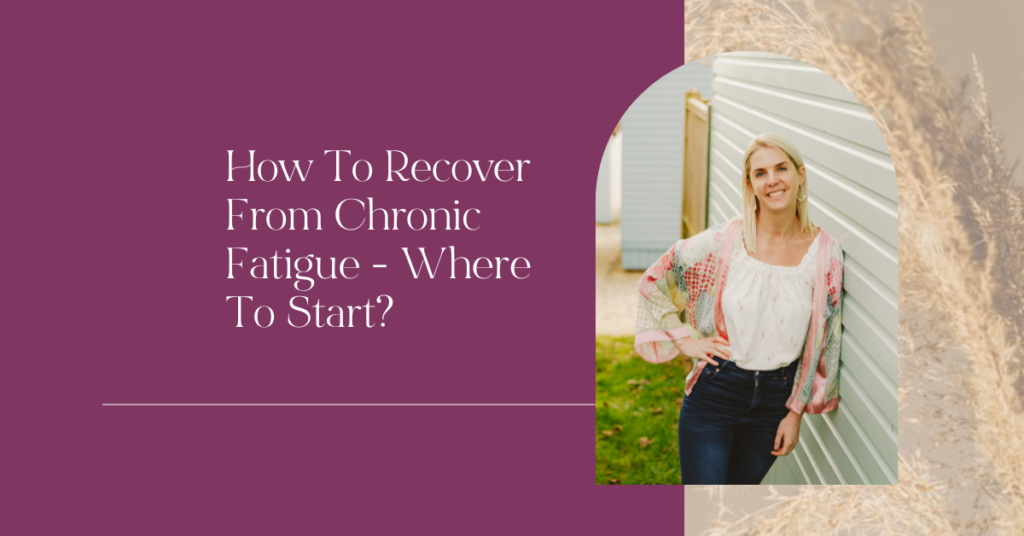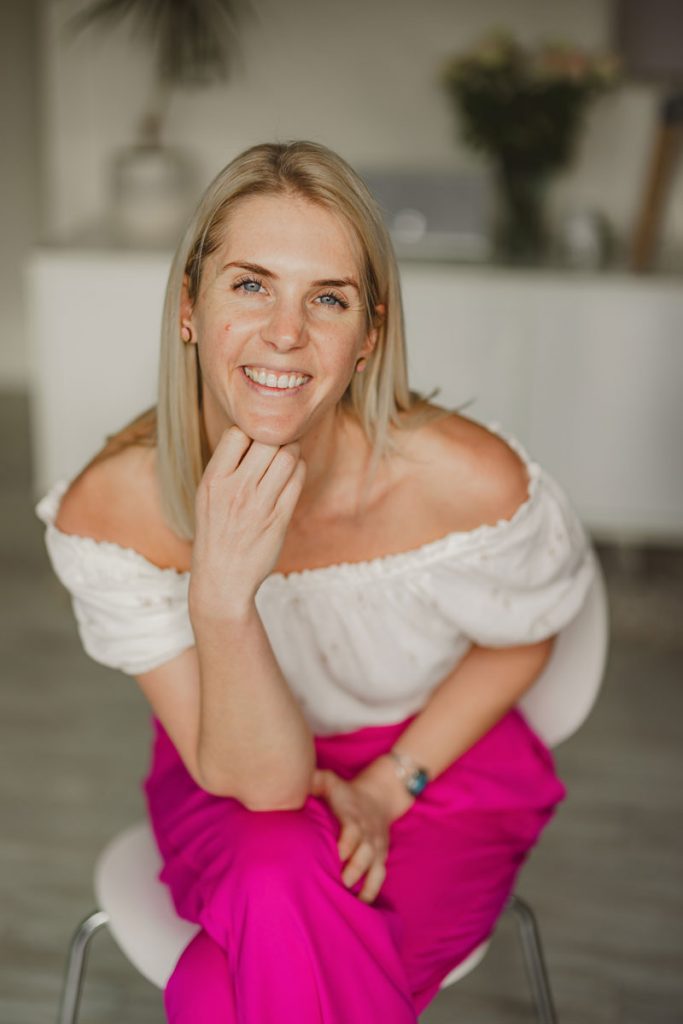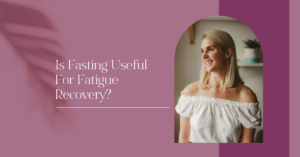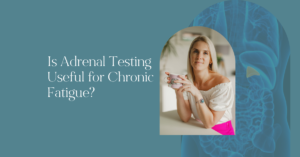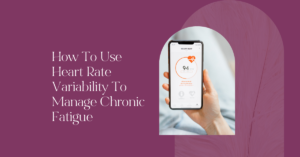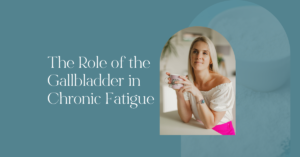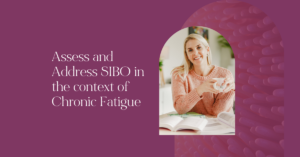A chronic fatigue experience or formal diagnosis is quite frankly, devastating. It can feel like every aspect of your life is falling through your fingertips. In Chronic Fatigue Recovery you are trying to hold everything together, process the inevitable grief and loss, understand your health care options and medical terminology, with the least amount of physical, emotional and mental energy.
Therefore, a question that comes up on our Instagram Q&A, time and again is:
Where do I start?
We would love to answer that question for you specifically, but here is the truth; Chronic Illness is complex and nuanced and the individual path to recovery will be specific to you, for so many reasons.
However, what many people lack when they embark on the journey of fatigue recovery is a framework of understanding. This can make the process feel like building a puzzle without the image of the completed puzzle or the edge pieces.
The goal for this post is to give you the image and the edges so that you can begin to build your puzzle, one piece at a time.
Step 1: Take a step back
When you don’t feel well, it is tempting to want to get all the answers yesterday and begin to make a plan. If you are a high achieving go getter with a “fix it” mentality, slowing down and stepping back may be hard.
Chronic illness goes hand in hand with loss. Loss of your health, loss of your old life, your career, relationships and everything in between.
Give yourself space to feel and process the enormity of your grief and change in circumstance. Discuss your situation with your family members and close friends. Get professional support around this if required – We highly recommend a Somatic Experiencing Practitioner, which is something we offer in our 1-1 services, but acknowledge that we all respond differently to different healing modalities.
When you create a bit more space, you will then be able to make decisions about your Chronic Fatigue Recovery from a more grounded place.
In my own journey, I (Anna), went straight into fixing mode. I stayed in the denial stage of grief for at least 12 months. Although I made physical progress in that year, emotionally, I was still very stuck and this created space for a relapse when yet another stressor came along.
Step 2: Stabilising For Chronic Fatigue Recovery
We build our health back up from a place of stability. Therefore, when it comes to chronic fatigue recovery, we want to identify the things in our life and physiology that are destabilising for our system.
By following step 1, slowing down, taking a step back, connecting with a support network, you have already started stabilising yourself.
When we work with our clients on their Chronic Fatigue Recovery journeys, we look at the factors listed below and address them in a case specific way. If you are just starting your journey and you are ready to move towards taking action, you may want to explore the additional resources that we have around these topics.
Nervous System Stability
- Read this blog
- Listen to this podcast
- Join the Getting To Know Your Nervous System Workshop
Blood Sugar Stability
Stabilise your sleep and circadian rhythms
Stabilise your activity levels and learn to pace your days
We appreciate that this is quite a long list of resources so we also advise: take your time. Give yourself space to listen, learn and process this information.
Carefully consider what feels doable for you, where you might like to start, what additional help and support you may need.
It could take you 6 months, at least, to address everything that is listed here. You don’t need to put a timestamp on any of it. Instead, focus on creating nourishing habits that will hopefully help you feel just a little bit better as the weeks and months go by.
Step 3: Dig Deeper
No doubt, while you are doing all of these things, you may also be attending various medical appointments, having various blood tests, scans and doctors visits.
Unfortunately, this is also part and parcel of chronic illness and chronic fatigue recovery. It can take time to get a diagnosis and sometimes the diagnosis only comes when all other possibilities have been ruled out.
Diagnosis can be helpful when it comes to ruling things in or out and I would encourage anyone and everyone to see their doctor and make sure all important investigations are carried out.
Additionally, know that diagnosis doesn’t mean cure or treatment. Once you have a diagnosis, especially if that diagnosis is a syndromal diagnosis like Chronic Fatigue Syndrome (CFS) or Fibromyalgia, it isn’t going to tell you how to feel better.
Some people might only have to work on stabilising activities in step 2 to see steady gains with their health. Others may need to dig deeper and uncover other possibilities. We help our clients determine if the following could be playing a role in their health complaints.
Common Contributors to Chronic Fatigue
- Mould Illness
- Nutrient deficiencies and oxygenation challenges
- Autoimmunity
- Parasites
- Digestive Imbalances
- Malabsorption Syndromes
- Endotoxemia
- Viral Infections
- Neuroinflammation and Brain Injury
- Thyroid dysfunction
- Hormone Imbalances
- Mitochondrial Dysfunction
When it comes to Chronic Fatigue Recovery, very often it is not one thing, but a cluster of things intertwined in a complex web. Doing the stabilising work sets the stage for untangling the web, but, when it comes to digging deeper, it can be challenging to do this step on your own.
When we work with our chronic fatigue clients we consider:
- A detailed timeline of the client’s entire health history from preconception to current
- Symptoms
- Test results from their medical team and functional testing we have recommended
- Response to interventions such as food, supplements and exercise
Therefore, if you are able to, we recommend that you work with someone or a team who have experience working with chronic fatigue who can thoroughly review your case.
Part of the process is to understand the mechanisms behind the symptoms that you are experiencing and support the underlying mechanisms with diet, lifestyle, supplements and medications where appropriate.
When you understand the mechanisms, you can choose interventions that will have the biggest impact on the most imbalances and this can help to make a case which seems complex, a lot more simple.
Step 4: Build Capacity
With the stability from steps 1 and 2 and the deeper work unravelling the mechanisms from step 3, you will hopefully by now, have a bit more capacity in your system.
This may look like greater emotional, mental and physical resilience, which means that you are better able to recover from stress that was once exhausting or debilitating.
This is the green light that you are ready for the next step of your Chronic Fatigue Recovery; to add on additional stressors that will help your body to adapt further.
The magic here is in the dosage. You want to add physical, mental or cognitive challenge in the right dosage to allow for positive adaptation. Expect this stage to take some trial and error. You will over do it, learn from your mistakes and do better next time. Everyone’s journey will be different which means, unfortunately, there are no prescriptions.
Depending on your circumstance you may need to work diligently on one area, others may need to work on all three. Here are some examples:
Building Physical Capacity
- Increasing strength with resistance training
- Increasing cardiovascular capacity with endurance training
- Improving balance, coordination or ballistic skills
Building Emotional Capacity
Somatic Experiencing is a fantastic tool for building the capacity of the nervous system to “hold” emotion. This is something that we offer in our 1-1 service or you can find your own independent practitioner here. We also have our Nurturing Resilience Group Program and Self Study Course.
Building Cognitive Capacity
- Reading
- Language Skills
- Memory Skills
- Listening to Music
- Listening to Podcast
- Writing Exercises
- Colouring or Drawing
Step 5: Chop Wood Carry Water
Believe it or not, there will come a time in your Chronic Fatigue recovery journey which we like to call the “Chop Wood Carry Water” stage of change. We teach this framework in greater depth in the Nurturing Resilience Program.
There is a time in your journey where you don’t need more tools or information, it is rather the commitment and discipline to implement what you already know.
This is the stage of change where you are consciously competent. What that means is that you know what you need to do, you just have to stay motivated (or inspired enough) to do it and keep doing it.
This is the stage of change where self sabotage is most likely to creep in. As health begins to grow, there may be some secondary gain to staying unwell and for this reason, or others, we don’t stay as committed, focussed or disciplined on the path.
Another challenge is that, as health improves, old parts and old patterns can become re-energised and start to crop up again. The achiever, the controller, the one who always helps others at the expense of their own needs, the people pleaser etc. may become reignited and this contributes to self-sabotaging behaviour.
This is why healing happens across physical, mental and emotional planes. Even when working on the physical, sometimes it is the emotional parts which block the way. Each case will be different, but most people will need some, if not many, practises for self reflection, self awareness and personal growth, as they navigate their healing journey.
Step 6: Prepare To Be Well
Some people bound effortlessly into their new lives, however that may look. As you move in the direction of health, don’t expect to go back to your old life. Rather, be prepared to build a new life. One that may still have to allow for accommodations based on the prognosis of your case.
As you prepare to step into this new way of being in the world, it is not uncommon to hold onto fear or the grief from the life that you lost while you were ill.
Yes, there may be parts of your physical care that can still be optimised as part of your lifelong journey with health, but often there can also be emotional parts that keep us stuck. Continue to stay curious about where you might be holding yourself back and who or what could offer support along the way.
Need More Help?
We truly believe that diet, lifestyle and mindbody medicine can have a significant impact on your health and pride ourselves on thoroughly reviewing your case and helping you achieve the best quality of life possible.
We aim to understand the physiological mechanisms behind your symptoms and support the rebalancing of those mechanisms in a long term case management relationship.
No two chronic illness cases are the same and therefore we don’t believe in a one size fits all model to health care. Chronic illness is complex and nuanced and therefore only a personalised plan tailored to your unique physiology will do!
We believe that everyone can feel better than they do at this moment. For the most part, there is huge potential to get you back to doing more of the things that you love.
If you would like further support in taking any or all of the steps mentioned here, we would love to hear from you. Apply here to book a call with one of our team.

